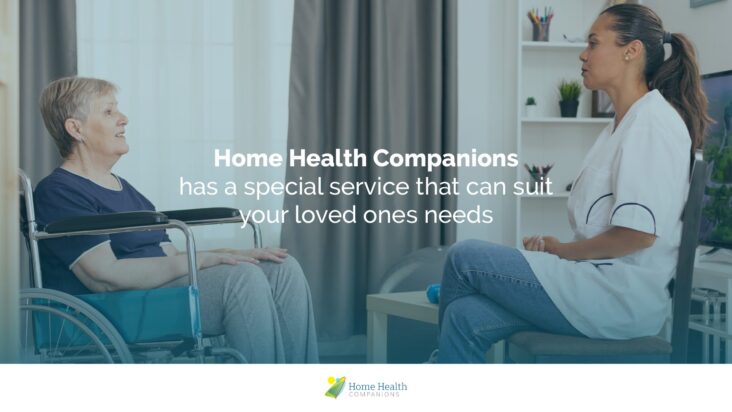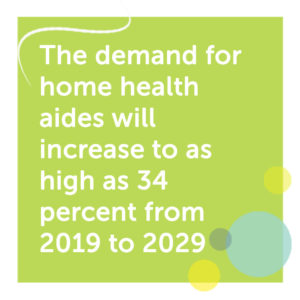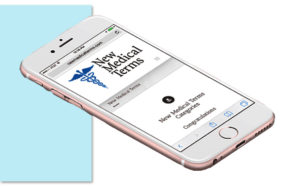The workplace culture in healthcare can profoundly impact the well-being of employees and clients. When healthcare organizations prioritize a positive workplace culture, they create a safe and supportive environment that leads to improved employee and client satisfaction, and, ultimately, better health outcomes, such as reduced complications, improved quality of life, and overall better health.
At Home Health Companions, we prioritize workplace culture and are proud to be the winners of HCP’s 2023 Best of Home Care® – Employer of Choice Award. This award recognizes our commitment to creating a positive workplace culture. We have been recognized as one of the region’s top employers of home caregivers for five years, a testament to our dedication to providing the highest quality care possible.
That is why we want to show you the benefits of a positive workplace culture in healthcare and highlight specific actions that can improve communication, cultural diversity, and employee safety.
We will also examine how workplace policies and procedures can contribute to a better work environment and discuss the importance of client-centered care, especially in home healthcare settings.
How do Healthcare Clients Benefit from a Good Workplace Culture?
A good workplace culture in healthcare can directly impact clients’ quality of care. When healthcare providers feel supported and valued in their work environment, they are more likely to provide compassionate, client-centered care. This, in turn, can lead to higher client satisfaction and better health outcomes.
Ensuring employee safety is a crucial aspect of a positive workplace culture in healthcare. Organizations that prioritize employee safety are likely to have well-designed safety policies, procedures, and training programs to educate and prevent employees from any potential risks. This reduces the incidence of workplace accidents, which can have a direct impact on client safety and the quality of care they receive.
For healthcare organizations that provide care in a client’s home environment, it is especially important to focus on improving client-centered care. This means understanding each client’s unique needs and preferences and working to tailor care to their circumstances. This can help to improve client satisfaction, as well as health outcomes.
At our healthcare organization, we take steps to ensure client safety, employee well-being, and a positive workplace culture. We prioritize clear workplace policies and procedures, diversity and inclusion, employee safety, effective communication, and client-centered care to provide the best possible care for our clients, regardless of the type of healthcare they require.
What Actions Improve Communication in the Healthcare Workplace?
Improving communication in the healthcare workplace is crucial for ensuring client safety and high-quality care. Here are some actions that can be taken to improve it:
1. Encourage active listening: Healthcare professionals should actively listen to their colleagues and clients to ensure everyone’s concerns and needs are heard and addressed. Healthcare professionals should also use clear and concise language when communicating with patients and colleagues to ensure that information is accurately conveyed.
2. Standardize communication methods: Healthcare organizations can establish standardized communication policies and procedures, such as using a common communication tool, or using structured communication formats. This can help prevent misunderstandings and errors that can compromise client safety.
3. Use technology: The right tools can help to streamline communication and reduce the risk of errors or misunderstandings. For example, Patient Portals enable clients to access their health information, request appointments, and communicate with their healthcare providers. Electronic Health Records enable healthcare providers to quickly and easily access clients’ information, including medical histories and medication lists.
4. Promoting an inclusive and welcoming environment: According to research by Zippia, as of 2022, most healthcare workers in the US are women, comprising approximately 80% of the healthcare workforce. The most common ethnicity among healthcare providers is White, making up 35.6% of all healthcare providers. In comparison, there are 24.0% African American healthcare providers and 23.4% Hispanic healthcare providers. Additionally, 5% of all healthcare providers identify as LGBT.
Healthcare organizations can take steps to recruit and retain a diverse workforce and provide opportunities for employees to learn about different cultures and backgrounds. This can improve cross-cultural communication and reduce healthcare disparities.
5. Emphasizing teamwork and collaboration: Encouraging teamwork and collaboration among healthcare professionals fosters an environment of open communication, mutual respect, and shared responsibility. This creates a safer environment for both employees and clients.
At Home Health Companions, we firmly believe that taking specific actions to promote a positive workplace culture in healthcare can significantly impact the well-being of employees and clients.
As an industry, we can all take action to improve workplace culture in healthcare, prioritizing a safe and supportive environment and working together to provide the highest quality care possible for our community.








 In her book “The Writing Life,” author Annie Dillard notes, “How we spend our days is, of course, how we spend our lives. If you start to sum up your days and realize how much of it is spent working, then all the sudden your work needs to be much more than a paycheck. Your time working comprises a lot of the limited time that is your life.”
In her book “The Writing Life,” author Annie Dillard notes, “How we spend our days is, of course, how we spend our lives. If you start to sum up your days and realize how much of it is spent working, then all the sudden your work needs to be much more than a paycheck. Your time working comprises a lot of the limited time that is your life.” You’re in demand.
You’re in demand.











